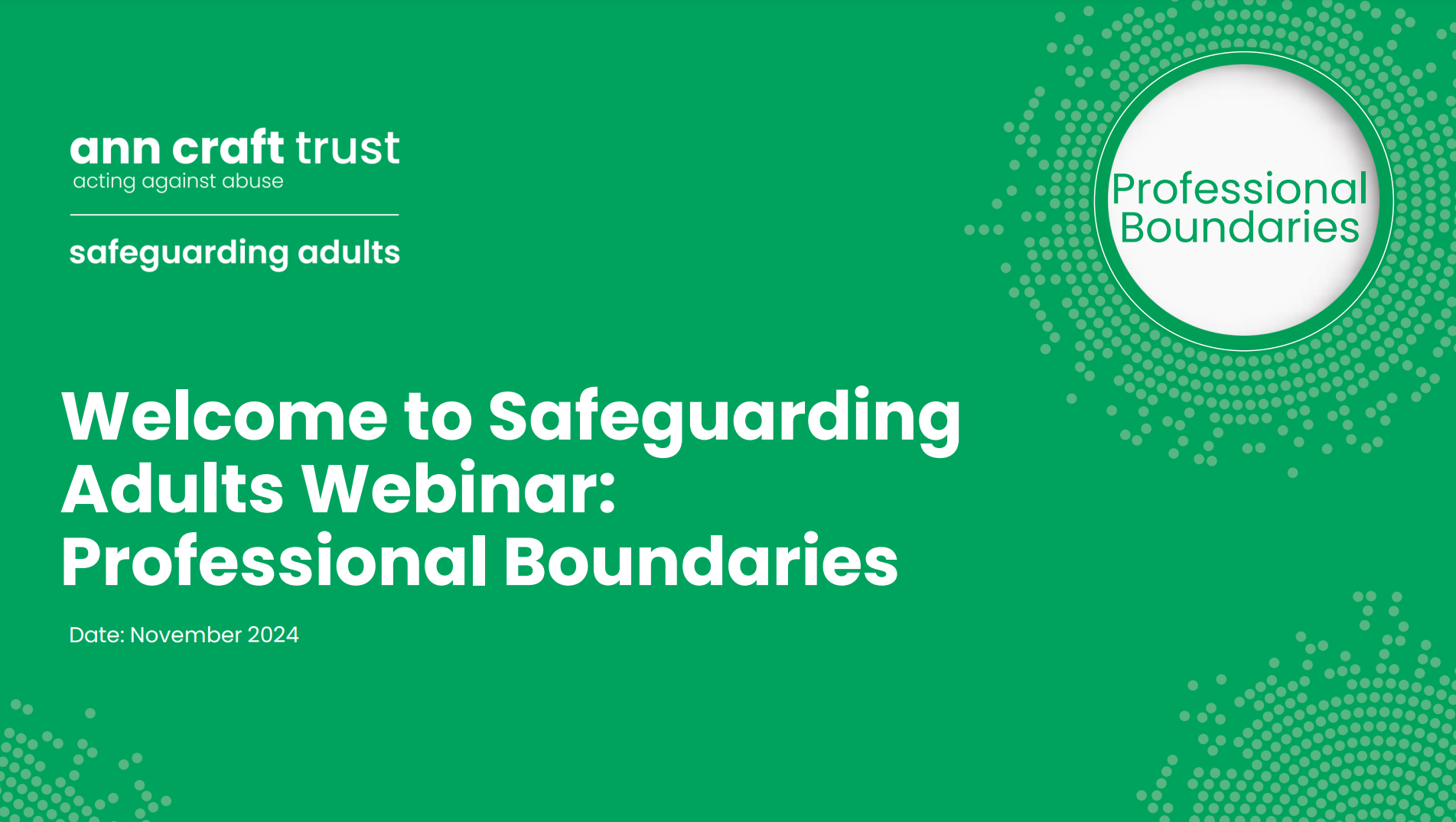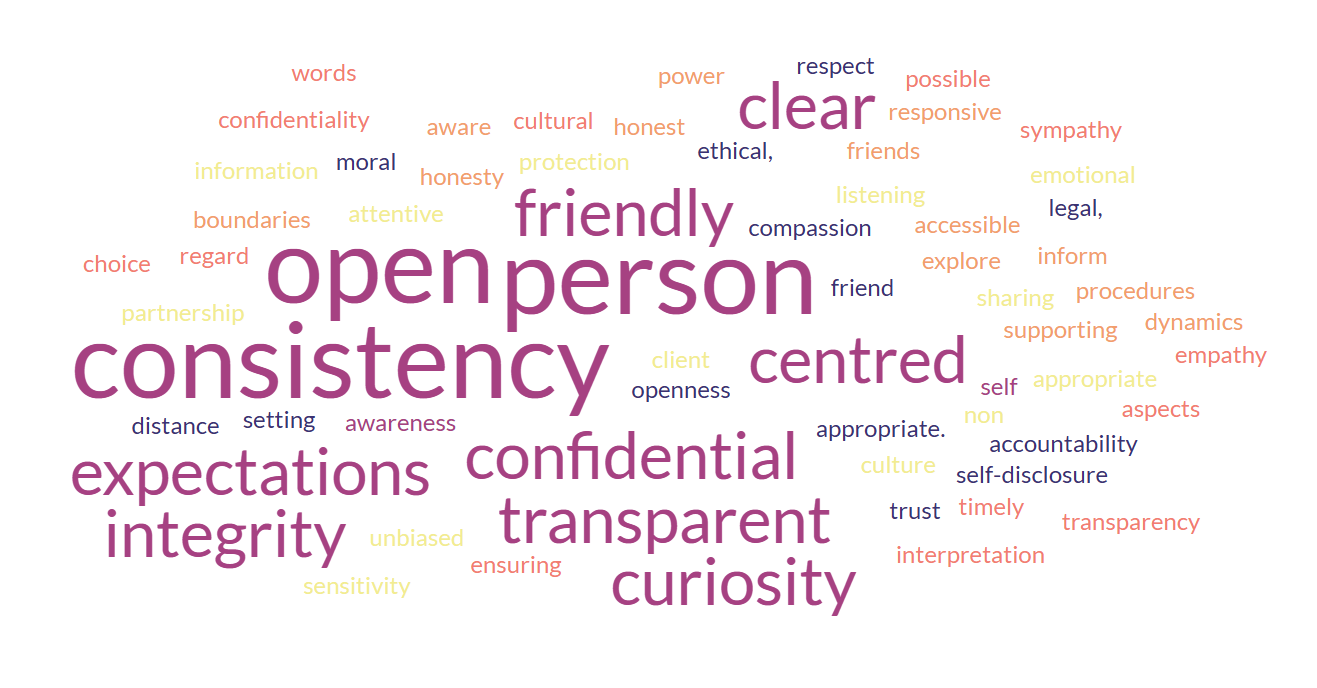
Understanding the importance of professional boundaries is vital when creating a safe culture in organisations for both users and staff.
During Safeguarding Adults Week, Safeguarding Adults managers Laura Thorpe and Roisin Tear ran an online seminar discussing professional boundaries.
They explored what professional boundaries are, and how you can implement them in your organisation. They also explored the benefits and challenges that professional boundaries can bring, along with the impact of not having clear boundaries in place.
Safeguarding adults is everyone’s business. We all have a role to play in keeping each other safe. For example, your role might be to support an adult in planning their care, or in finding a way to move on from a difficult situation. To fulfil this role, you will need to show empathy and build trust in the working relationship. This will mean working closely with the adult, which means it will be necessary to set some professional boundaries.
What Does “Professional Boundaries” Mean to You?
Laura and Roisin asked participants to say, in as few words as possible, what the term “professional boundaries” means to them.
This word cloud represents the most common themes in the responses:

They also asked participants to explain why professional boundaries are important. Below are some of the responses:
- To look after ourselves and not get overinvolved and then burnt out
- To keep yourself and the client safe
- Protect our own wellbeing
- Risk of emotional decision making
- The sessions are for the service user, not for the professional to self-disclose
- Other patients might feel you don’t prioritise them
Finally, Laura and Roisin asked participants to consider whether the following scenarios are potential breaches of professional boundaries:
- A client adds you on face book or Instagram. Should you add them?
- A client with a spent conviction for serious child abuse asks you lots of questions about your private life, family and children. Should you discuss this?
- You are offered to go outside for a cigarette or a vape with a client. Should you go?
- A client asks you to be a guarantor on a privately rented flat, they are living in a hostel with 4 children, and they tell you that you are the only person they have to ask. Should you do this?
